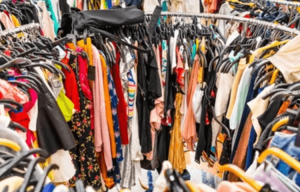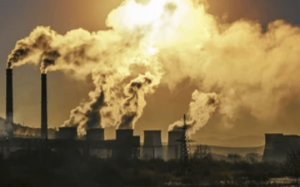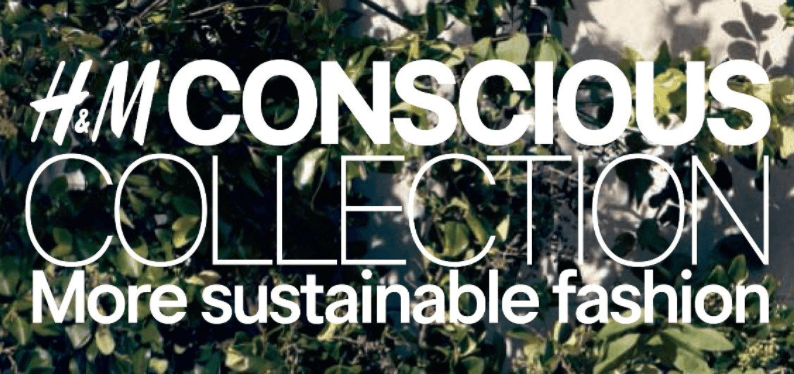
Fast fashion is defined as a market that rapidly produces high volumes of cheap clothing which causes the consumers to buy more than they need. I, however, define it as sinister.
From April 19th to the 25th a global movement called the fashion revolution week took place. This week was found in response to the Rana Plaza collapse that killed 1,133 people in 2013 in Bangladesh. This factory had many sweatshops so the building had too much heavy equipment and bad monitoring. This led to it collapsing, resulting in a tragedy. Big brand names like Mango, Benetton, Bonmarche, and many more had garment factories in the building. Of course, this is only one of the awful sides of fast fashion; profiting off of people in need. The workers that make our clothes are underpaid, overworked, abused, and harassed in their work. So, fast fashion is a big human rights issue, it is right under our nose but most people live their life without knowing or worse, knowing but not acknowledging the true cost of cheap and fast fashion. What else makes fast fashion sinister in my eyes?
“Climate change added $8 billion to Hurricane Sandy’s damages” this is the top story I found when I searched “Climate Change News”. All over the news, we hear similar stories. “Threshold for dangerous global warming will be crossed between 2027 and 2042”, with studies like these we can clearly see that something needs to be done, right? Well, people must be fighting very hard to save the earth, right? Bzzzzzzzz. Try again! Things are being done but it just doesn’t seem like people are taking the issue seriously enough, and making big enough changes. Things like the Sustainable Development Goals are like checklists for companies. They are not something to actually work on, instead, they are minor projects for media coverage and a report to the UN. On the other hand, I don’t have evidence to back this up, we will have to wait and see whether the world is in flames by 2030 or not.
 What comes to mind when we think of the causes of global warming? The oil industry comes to my mind, as it is the number one polluter in the world. Fast Fashion comes right after oil, as the second biggest polluter in the world. I just want to make sure you understand dear reader, fast fashion is something all of us benefit from or think we benefit from, it is something so sinister because it is something everyone does but most don’t know the price of. I think this is because it is a multi-billion industry and it is something so convenient that people don’t want to see the consequences of it. Fast fashion, of course, has a reason for being the second dirtiest industry. According to Princeton; it takes 10,000 liters of water to produce one kg of cotton, and textile dyeing that has toxic chemicals in it ends up in our oceans, so fast fashion harms our water resources. Synthetic materials cause microfibers made out of plastic to enter our oceans, this can cause toxic chemicals to enter the marine ecosystem and harm animals and humans that eat those animals. Because of the nature of fast fashion people tend to consume a lot, in 2019 a total of 62 million metric tons of apparel were consumed. These clothes end up in landfills and most are still usable clothing. It is said that if the industry maintains its ways, a 50% increase in greenhouse gas emissions is to be expected within a decade.
What comes to mind when we think of the causes of global warming? The oil industry comes to my mind, as it is the number one polluter in the world. Fast Fashion comes right after oil, as the second biggest polluter in the world. I just want to make sure you understand dear reader, fast fashion is something all of us benefit from or think we benefit from, it is something so sinister because it is something everyone does but most don’t know the price of. I think this is because it is a multi-billion industry and it is something so convenient that people don’t want to see the consequences of it. Fast fashion, of course, has a reason for being the second dirtiest industry. According to Princeton; it takes 10,000 liters of water to produce one kg of cotton, and textile dyeing that has toxic chemicals in it ends up in our oceans, so fast fashion harms our water resources. Synthetic materials cause microfibers made out of plastic to enter our oceans, this can cause toxic chemicals to enter the marine ecosystem and harm animals and humans that eat those animals. Because of the nature of fast fashion people tend to consume a lot, in 2019 a total of 62 million metric tons of apparel were consumed. These clothes end up in landfills and most are still usable clothing. It is said that if the industry maintains its ways, a 50% increase in greenhouse gas emissions is to be expected within a decade.
So with all of these problems, there have been new steps taken to reduce the negative impacts of fast fashion… mainly by fast fashion brands. Brands like H&M, Uniqlo, Mango, Asos, Zara are taking strides for “sustainability”. Some of these brands have set commitments like; 100% recycled or sustainable products by 2030 or coming out with new sustainable lines. This seems very nice in theory. But isn’t it hypocritical? I mean you can stick the label “eco-friendly” on something but that doesn’t make it eco-friendly. Companies need to be more transparent about their processes. Plus, these eco-friendly lines give people a false sense of security, I think overconsumption is the real problem here. We need to reduce consumption rather than only focusing on good materials. So yes, it is good that fast fashion companies are aiming for sustainability however we need more transparency, mainstream news, education of the general public, making slow fashion more accessible, focusing on consumption numbers rather than materials.

You dear reader can teach others about the issue at hand, can reduce your consumption, and aim to buy things you know you will use over and over again, donate your clothes, etc. You don’t need money to buy fancy (and bland) clothes from sustainable fashion companies instead try buying reusable and high-quality pieces, try donating, try thrifting, and craft projects to make statement pieces in your wardrobe. Thank you for reading dear reader, hopefully, you learned some things, I will catch you in another blog!
PS: Also https://goodonyou.eco is a great website to see what your favorite company is doing for the environment! I use it a lot. Don’t forget that buying less is more important than where you buy it from (at least in my opinion).

